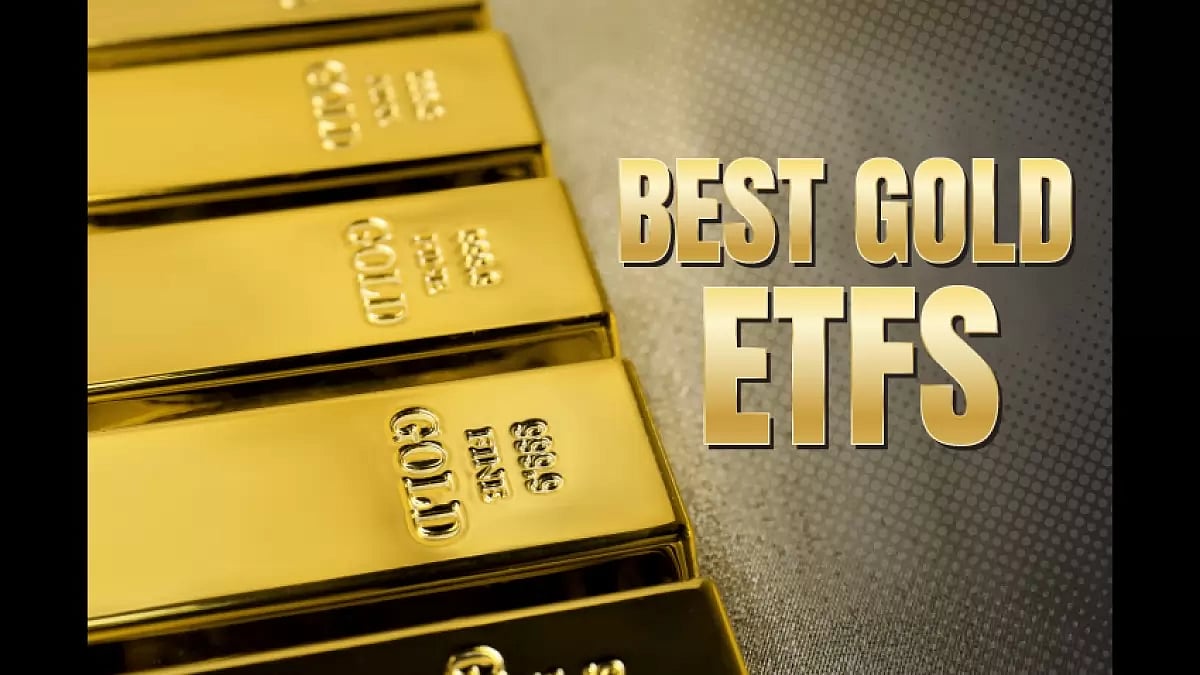The Growing Popularity Of Gold And Cash-Equivalent ETFs

Table of Contents
First, let's briefly define ETFs. Exchange-Traded Funds (ETFs) are investment funds traded on stock exchanges, offering diversification across a range of assets. Unlike mutual funds, ETFs can be bought and sold throughout the trading day. This article will focus on two key types: gold ETFs and cash-equivalent ETFs.
The Safe Haven Appeal of Gold ETFs
Gold has long been considered a safe haven asset, historically preserving value during times of economic turmoil and inflation. When traditional markets falter, investors often turn to gold as a hedge against uncertainty. However, investing in physical gold presents challenges: storage, security, and the difficulty of easily converting it back to cash. Gold ETFs elegantly solve these problems. They offer exposure to the price of gold without the need for physical possession.
- Hedge against inflation: Gold's value often rises during periods of inflation, acting as a safeguard for your purchasing power.
- Diversification benefits: Including gold ETFs in your portfolio can help reduce overall risk by diversifying away from traditional assets like stocks and bonds.
- Liquidity and accessibility: Gold ETFs trade on major exchanges, providing easy access to buy and sell your investment.
- Lower storage and insurance costs: Unlike physical gold, you avoid the expense and hassle of secure storage and insurance.
Popular gold ETFs include SPDR Gold Shares (GLD) and iShares Gold Trust (IAU), offering investors convenient access to the gold market.
The Stability of Cash-Equivalent ETFs
Cash-equivalent ETFs provide a low-risk alternative for investors seeking capital preservation. These ETFs typically hold highly liquid, short-term debt instruments such as Treasury bills and commercial paper, offering stability in fluctuating markets. They're designed to track the return of a short-term money market index, mimicking the yield of a cash account but often with greater diversification.
- Minimal risk profile: Their holdings in short-term, high-quality debt minimize the risk of capital loss.
- High liquidity: They are readily bought and sold on exchanges, providing quick access to your funds.
- Suitable for risk-averse investors: Ideal for those prioritizing capital preservation over high growth potential.
- Ideal for short-term investment goals: Perfect for investors with short-term financial objectives.
Examples of cash-equivalent ETFs include Schwab U.S. Treasury Bond ETF (SCHR) and iShares Short Treasury Bond ETF (SHV).
Comparing Gold and Cash-Equivalent ETFs: A Portfolio Strategy
A well-diversified investment strategy often benefits from including both gold and cash-equivalent ETFs. These asset classes offer complementary strengths: gold provides a potential hedge against inflation and market downturns, while cash-equivalents offer stability and liquidity.
- Balancing risk and return: The combination allows investors to balance the potential for growth (from gold) with the security of capital preservation (from cash-equivalents).
- Hedging against various market conditions: This strategy helps protect your portfolio across different economic scenarios.
- Creating a robust investment strategy: Diversifying across different asset classes reduces overall portfolio volatility.
- Strategic asset allocation: Carefully allocating your investments between these two ETF types allows you to tailor your portfolio to your risk tolerance and financial goals.
Factors Driving the Growth of Gold and Cash-Equivalent ETFs
Several macroeconomic factors contribute to the growing popularity of these ETFs:
- Inflation: Rising inflation erodes the purchasing power of cash, making gold and other inflation hedges attractive.
- Geopolitical instability: Uncertainty in global markets often drives investors toward safer assets like gold.
- Interest rate changes: Fluctuations in interest rates can impact the attractiveness of various investments, influencing investor choices between cash-equivalents and other options.
- Increased accessibility: Online brokerage platforms make it easier than ever before to invest in ETFs.
Understanding the Risks Involved
While offering significant advantages, it's crucial to acknowledge the risks:
- Gold ETFs: Gold prices can be volatile, subject to market fluctuations and global economic events.
- Cash-Equivalent ETFs: While considered low-risk, these ETFs typically offer relatively low returns compared to higher-risk investments.
Before investing in any ETF, conduct thorough research, carefully assess your risk tolerance, and if needed, consult a qualified financial advisor.
Conclusion
Investing in gold and cash-equivalent ETFs can be a valuable strategy for diversifying your portfolio and managing risk. These ETFs offer different, yet complementary, benefits – gold as a hedge against inflation and market uncertainty, and cash-equivalents for stability and liquidity. Remember, while these ETFs provide advantages, understanding the inherent risks is paramount. Consider diversifying your portfolio with gold and cash-equivalent ETFs to potentially improve its resilience and stability. Learn more about the advantages of gold and cash-equivalent ETFs today, and remember to consult with a financial advisor before making any investment decisions.

Featured Posts
-
 Doblete De Burky Analisis Del Triunfo De Rayadas
Apr 23, 2025
Doblete De Burky Analisis Del Triunfo De Rayadas
Apr 23, 2025 -
 Tigers Furious Over Overturned Plate Call Hinch Demands Mlb Evidence
Apr 23, 2025
Tigers Furious Over Overturned Plate Call Hinch Demands Mlb Evidence
Apr 23, 2025 -
 2025s Unexpected Hitting Hero A Brewers Clutch Story
Apr 23, 2025
2025s Unexpected Hitting Hero A Brewers Clutch Story
Apr 23, 2025 -
 New Business Hot Spots Across The Country An Interactive Map
Apr 23, 2025
New Business Hot Spots Across The Country An Interactive Map
Apr 23, 2025 -
 Brewers Achieve Historic Victory Over Struggling Athletics
Apr 23, 2025
Brewers Achieve Historic Victory Over Struggling Athletics
Apr 23, 2025
